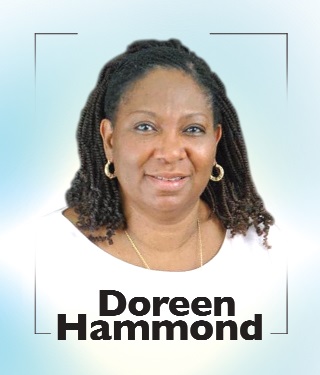
Empower People Living with Disability for national development
There is a saying in Akan that Ɔbafan se Ɔreyɛ oni, na neto na ɛrehi” which literally means that the physically challenged thinks that dragging their buttocks on the floor punishes their mother but is actually punishing themselves.
This, to me, sums up our society’s general perception about disability; that it is a self-inflicted situation. Worse still, some believe it is a curse as a result of some wrong committed.
Advertisement
One would have thought that this erroneous perception and belief was as a result of the lack of knowledge or ignorance, but in our contemporary society, where most people have been educated, how do we justify our treatment of people living with disability?
Perhaps the answer to this question is embodied in a video which was posted on social media recently after the altercation between Stonebwoy and Shatta Wale which nearly marred this year’s Vodafone Ghana Music Awards (VGMA).
In the video, Shatta was seen mimicking Stonebwoy’s limpy walk which is attributed to a motor accident. Shatta and his friend in the video went in circles for some time and both burst out laughing. It was so obvious that the video was meant to ridicule Stonebwoy.
One would have thought that the video would attract condemnation from society but sadly, the general reaction on social media was more of laughter with a few chastising Shatta Wale for this unacceptable behaviour.
But in reality, we live in a society where we do not pay attention to and provide the needs of persons with disability (PWD). This is manifested not only in the general absence of infrastructural facilities for them even in most public buildings. Sometimes this is to the extent that access to such buildings become impossible.
By failing to provide facilities to make them less dependent on others, they are compelled to depend on others and in most cases, children.
And so on a daily basis, as they go out to beg for alms, they are accompanied by children who obviously should be in school. Also, we seem to think that the only form of rehabilitation they need is a wheel chair and vocational skills like sewing, shoe mending and dress making.
A few of them are able to struggle through tertiary education to higher levels, but the box in which we have put them in remains closed and their full potential remains largely untapped.
And even for those who have attained such levels of education, access to jobs commensurate with their level of training becomes a challenge.
Dr Seidu Danaa’s case with the National House of Chiefs readily comes to mind. The chiefs would not want to work with him after he was appointed the Minister of Chieftaincy Affairs because of traditional and superstitious beliefs even in this modern era when one would have expected that chiefs would influence others to stop the discrimination and stigmatisation of PWDs.
Sometimes, PWDs are not employed because there are no facilities such as purposefully designed washrooms for their use, not to talk of desks and chairs and access to the stairs in order to climb up and lack of elevators.
Despite the fact that we are seeing more PWDs as a result of not only road accidents and birth defects but conditions such as stroke, we continue to think that all they deserve are occasional donations of food supplies and wheel chairs.
A person becomes disabled and that in some cases mean that a family member must always be around to assist even when with some rehabilitation, equipment and infrastructural changes, this person could be self-reliant.
What we forget is that our lukewarm attitude towards this issue comes back to haunt us on the streets as we get irritated when they ask for alms and when we cannot feel free to live our normal lives because we must be by them offering assistance.
In other societies, facilities such as public buses which have the ability to lower themselves to a level which makes boarding with the wheel chair very easy are available(low entry buses) , not to talk of the fact that the driver is not in a hurry to drive off until the PWD is well-seated at a demarcated area in the bus .
If it were in our country, the PWD would have to be manually carried on board and made to feel that is a luxury and a privilege!
In every society, there are bound to be a number of PWDs and people who would need special care.
There is the urgent need for the authorities concerned to stop paying lip service to the acts and provisions we have signed to make life a bit more comfortable for PWDs. This is a must and will show how caring we are as a people and enable them to contribute their quota to national development.
Writer’s E-mail: [email protected]/ [email protected]



